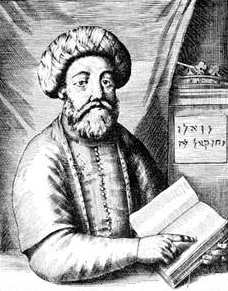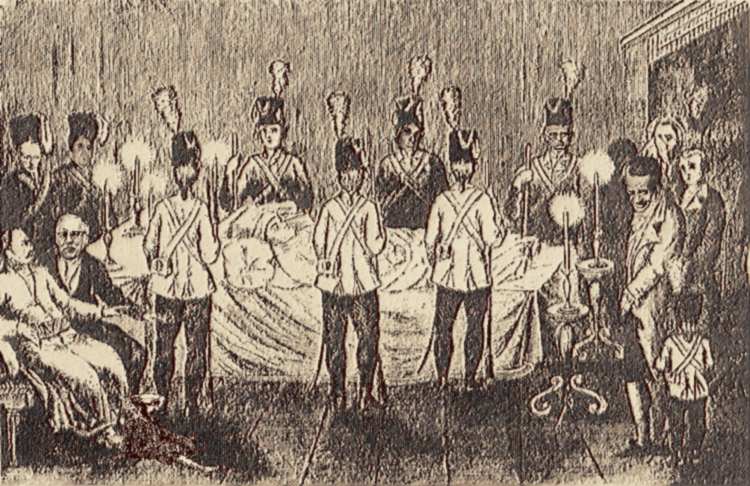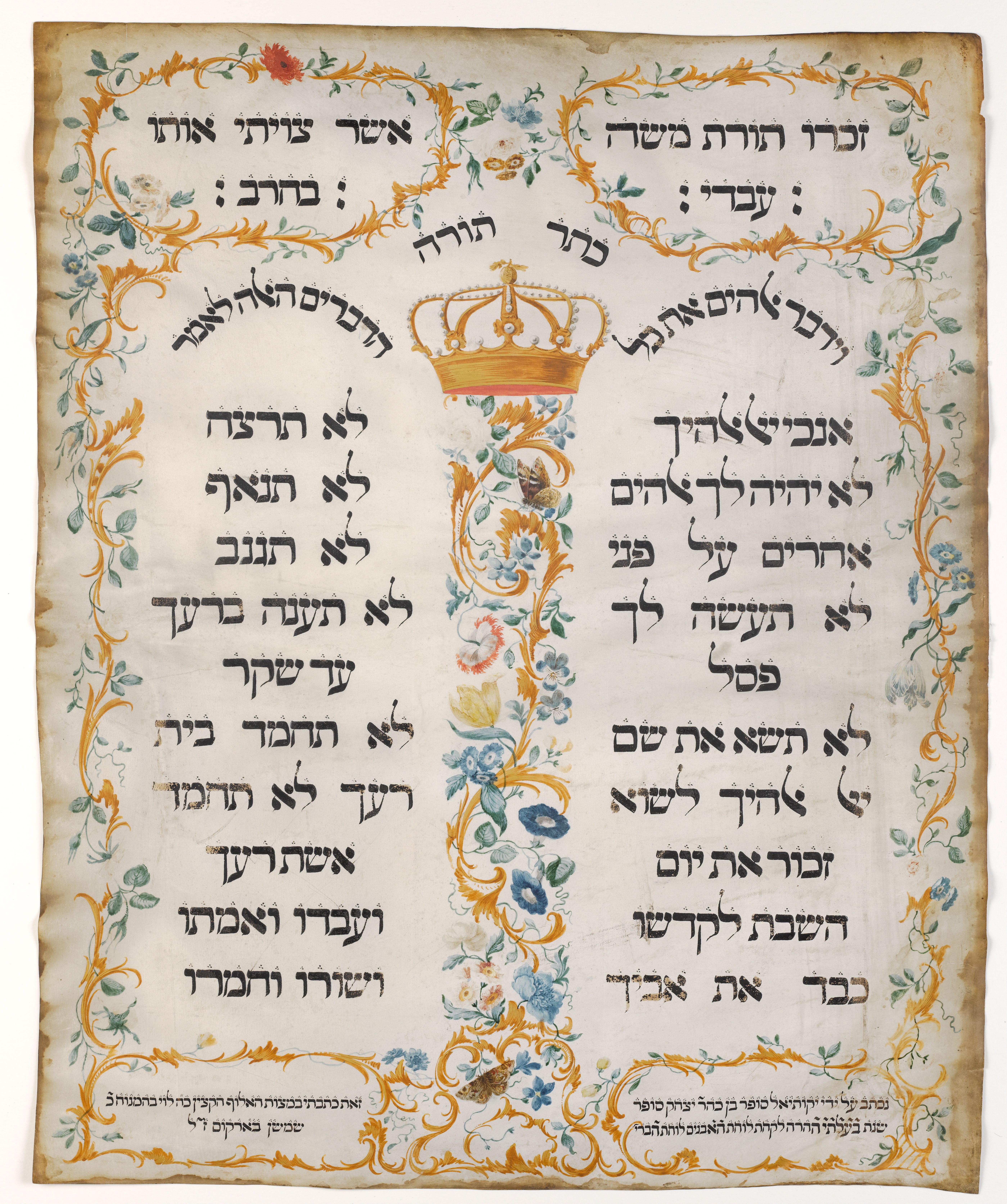|
Dönmeh
The Dönmeh (, , ) were a group of Sabbatean crypto-Jews in the Ottoman Empire who were forced to convert to Islam, but retained their Jewish faith and Kabbalistic beliefs in secret. The Sabbatean movement was centered mainly in Thessalonika. It originated during and soon after the era of Shabbetai Tzevi, a 17th-century Sephardic Jewish rabbi and Kabbalist who claimed to be the Jewish Messiah and eventually feigned conversion to Islam under threat of capital punishment from the Ottoman sultan Mehmed IV. After Zevi's forced conversion to Islam, a number of Sabbatean Jews purportedly converted to Islam while remaining secretly faithful to Judaism after their leader, and became known as the "Dönmeh". Some Sabbateans lived on into 21st-century Turkey as descendants of the Dönmeh. Etymology The Turkish word ''dönmeh'' (" apostates") derives from the verbal root ''dön-'' () that means "to turn", i.e., "to convert", but in the pejorative sense of " turncoat". The in ... [...More Info...] [...Related Items...] OR: [Wikipedia] [Google] [Baidu] |
List Of Jewish Messiah Claimants
The Messiah in Judaism means ''anointed one''; it included Jewish priests, prophets and kings such as David and Cyrus the Great. Later, especially after the failure of the Hasmonean Kingdom (37 BCE) and the Jewish–Roman wars (66–135 CE), the figure of the Jewish Messiah was one who would deliver the Jews from oppression and usher in an '' Olam HaBa'' ("world to come"), the Messianic Age. Some people were looking forward to a military leader who would defeat the Seleucid or Roman enemies and establish an independent Jewish kingdom. Others, like the author of the Psalms of Solomon, stated that the Messiah was a charismatic teacher who would give the correct interpretation of Mosaic law, restore the monarchy of Israel, and judge mankind. This is a list of notable people who have been said to be the Messiah ben David, either by themselves or by their followers. The list is divided into categories, which are sorted according to date of birth (where known). 1st century *Jesu ... [...More Info...] [...Related Items...] OR: [Wikipedia] [Google] [Baidu] |
Sabbateans
The Sabbateans (or Sabbatians) are a variety of Jewish followers, disciples, and believers in Sabbatai Zevi (1626–1676), an Ottoman Jewish rabbi and Kabbalist who was proclaimed to be the Jewish Messiah in 1666 by Nathan of Gaza. Vast numbers of Jews in the Jewish diaspora accepted his claims, even after he outwardly became an apostate due to his forced conversion to Islam in the same year. Sabbatai Zevi's followers, both during his proclaimed messiahship and after his forced conversion to Islam, are known as Sabbateans. In the late 17th century, northern Italy experienced a surge of Sabbatean activity, driven by the missionary efforts of Abraham Miguel Cardoso. Around 1700, a radical faction within the Dönmeh movement, led by Baruchiah Russo, emerged, which sought to abolish many biblical prohibitions. During the same period, Sabbatean groups from Poland migrated to the Land of Israel. The Sabbatean movement continued to disseminate throughout central Europe and ... [...More Info...] [...Related Items...] OR: [Wikipedia] [Google] [Baidu] |
Jacob Frank
Jacob Joseph Frank (; Yiddish: יעקבֿ פֿראַנק; ; born Jakub Lejbowicz; 1726 – 10 December 1791) was a Polish-Jewish religious leader who claimed to be the reincarnation of the self-proclaimed messiah Sabbatai Zevi (1626–1676) and also of the biblical patriarch Jacob. The Jewish authorities in Poland excommunicated Frank and his followers due to his heretical doctrines that included deification of himself as a part of a trinity and other controversial concepts such as neo- Carpocratian "purification through transgression". Frank’s teachings led his sect into scandalous practices, including ritualized orgies, incestuous acts—most notably between fathers and daughters—and the deliberate violation of Jewish moral laws, which he preached were necessary to hasten a messianic redemption through embracing the "abyss" of sin. Frank arguably created a religious movement, now referred to as Frankism, which incorporated aspects of Christianity and Judaism. His fo ... [...More Info...] [...Related Items...] OR: [Wikipedia] [Google] [Baidu] |
Sabbatai Zevi
Sabbatai Zevi (, August 1, 1626 – ) was an Ottoman Jewish mystic and ordained rabbi from Smyrna (now İzmir, Turkey). His family were Romaniote Jews from Patras. His two names, ''Shabbethay'' and ''Ṣebi'', mean Saturn and mountain gazelle, respectively. Active throughout the Ottoman Empire, Zevi claimed to be the long-awaited Jewish Messiah and founded the Sabbatean movement. Central to his teachings was the belief that during the Messianic Age, acts traditionally considered sinful would transform into righteous ones. This antinomian doctrine led Zevi and his followers to deliberately violate Jewish commandments, a controversial practice that later inspired movements like the Frankists. Upon arriving in Constantinople in February 1666, Sabbatai was imprisoned on the order of the grand vizier Köprülüzade Fazıl Ahmed Pasha. In September of that same year, after being moved from different prisons around the capital to the imperial courts' seat in Adrianople (now Edi ... [...More Info...] [...Related Items...] OR: [Wikipedia] [Google] [Baidu] |
Forced Conversion
Forced conversion is the adoption of a religion or irreligion under duress. Someone who has been forced to convert to a different religion or irreligion may continue, covertly, to adhere to the beliefs and practices which were originally held, while outwardly behaving as a convert. Crypto-Jews, Crypto-Christians, Crypto-Muslims, Crypto-Hindus and Crypto-Pagans are historical examples of the latter. Religion and proselytization The religions of the world are divided into two groups: those that actively seek new followers (missionary religions) and those that do not (non-missionary religions). This classification dates back to a lecture given by Max Müller in 1873, and is based on whether or not a religion seeks to gain new converts. The three main religions classified as missionary religions are Christianity, Islam, and Buddhism, while the non-missionary religions include Judaism, Hinduism, and Zoroastrianism. Other religions, such as Primal Religions, Confucianism, and T ... [...More Info...] [...Related Items...] OR: [Wikipedia] [Google] [Baidu] |
Crypto-Judaism
Crypto-Judaism is the secret adherence to Judaism while publicly professing to be of another faith; practitioners are referred to as "crypto-Jews" (origin from Greek ''kryptos'' – , 'hidden'). The term is especially applied historically to Spanish and Portuguese Jews who outwardly professed Catholicism, also known as ''Conversos'', ''Marranos'', or the ''Anusim''. The phenomenon is especially associated with medieval Spain, following the Massacre of 1391 and the expulsion of the Jews in 1492.Levine Melammed, Renee. "Women in Medieval Jewish Societies," in ''Women and Judaism: New Insights and Scholarship''. Ed. Frederick E. Greenspahn. New York: New York University Press, 2009. 105–106. After 1492 in Spain and 1497 in Portugal, officially they no longer existed. The Spanish Inquisition and the Portuguese Inquisition were established to monitor converted Jews and Muslims and their descendants for their continued adherence to Christian faith and practice, with severe penaltie ... [...More Info...] [...Related Items...] OR: [Wikipedia] [Google] [Baidu] |
Thessalonika
Thessaloniki (; ), also known as Thessalonica (), Saloniki, Salonika, or Salonica (), is the second-largest city in Greece (with slightly over one million inhabitants in its Thessaloniki metropolitan area, metropolitan area) and the capital city, capital of the geographic regions of Greece, geographic region of Macedonia (Greece), Macedonia, the administrative regions of Greece, administrative region of Central Macedonia and the Decentralized Administration of Macedonia and Thrace. It is also known in Greek as , literally "the co-capital", a reference to its historical status as the "co-reigning" city () of the Byzantine Empire alongside Constantinople. Thessaloniki is located on the Thermaic Gulf, at the northwest corner of the Aegean Sea. It is bounded on the west by the Axios Delta National Park, delta of the Axios. The Thessaloniki (municipality), municipality of Thessaloniki, the historical centre, had a population of 319,045 in 2021, while the Thessaloniki metropolitan are ... [...More Info...] [...Related Items...] OR: [Wikipedia] [Google] [Baidu] |
Brockhaus And Efron Jewish Encyclopedia E13 783-0
Brockhaus may refer to: * Friedrich Arnold Brockhaus (1772–1823), German encyclopedia publisher and editor ** F.A. Brockhaus AG, his publishing firm ** ''Brockhaus Enzyklopädie'', an encyclopedia published by the firm ** 27765 Brockhaus, an asteroid named for him * Hermann Brockhaus (1806–1877), German orientalist See also *Brockhaus and Efron Encyclopedic Dictionary The ''Brockhaus and Efron Encyclopaedic Dictionary'' (35 volumes, small; 86 volumes, large) is a comprehensive multi-volume encyclopaedia in Russian. It contains 121,240 articles, 7,800 images, and 235 maps. It was published in the Russian Em ..., a Russian-language encyclopedia {{disambiguation, surname German-language surnames ... [...More Info...] [...Related Items...] OR: [Wikipedia] [Google] [Baidu] |
Ten Commandments
The Ten Commandments (), or the Decalogue (from Latin , from Ancient Greek , ), are religious and ethical directives, structured as a covenant document, that, according to the Hebrew Bible, were given by YHWH to Moses. The text of the Ten Commandments appears in three markedly distinct versions in the Bible: at Exodus , Deuteronomy , and the " Ritual Decalogue" of Exodus . The biblical narrative describes how God revealed the Ten Commandments to the Israelites at Mount Sinai amidst thunder and fire, gave Moses two stone tablets inscribed with the law, which he later broke in anger after witnessing the worship of a golden calf, and then received a second set of tablets to be placed in the Ark of the Covenant. Scholars have proposed a range of dates and contexts for the origins of the Decalogue. “Three main dating schemes have been proposed: (1) it was suggested that the Decalogue was the earliest legal code given at Sinai, with Moses as author, and the Amphictyony con ... [...More Info...] [...Related Items...] OR: [Wikipedia] [Google] [Baidu] |
Bursa
Bursa () is a city in northwestern Turkey and the administrative center of Bursa Province. The fourth-most populous city in Turkey and second-most populous in the Marmara Region, Bursa is one of the industrial centers of the country. Most of Turkey's automotive production takes place in Bursa. As of 2019, the Metropolitan Province was home to 3 238 618 inhabitants, 2 283 697 of whom lived in the 3 city urban districts (Osmangazi, Yıldırım and Nilüfer) plus Gürsu and Kestel. Its rich history provides various places of interest in Bursa. Bursa became the capital of the Ottoman Empire (back then the Ottoman Beylik) from 1335 until the 1360s. A more recent nickname is ("") referring to the parks and gardens located across the city, as well as to the vast, varied forests of the surrounding region. Bursa has a rather orderly urban growth and borders a fertile plain. The mausoleums of the early Ottoman sultans are located in Bursa, and the city's main landmarks include nu ... [...More Info...] [...Related Items...] OR: [Wikipedia] [Google] [Baidu] |
Psalms
The Book of Psalms ( , ; ; ; ; , in Islam also called Zabur, ), also known as the Psalter, is the first book of the third section of the Tanakh (Hebrew Bible) called ('Writings'), and a book of the Old Testament. The book is an anthology of Biblical Hebrew, Hebrew religious hymns. In the Judaism, Jewish and Western Christianity, Western Christian traditions, there are 150 psalms, and several more in the Eastern Christianity, Eastern Christian churches. The book is divided into five sections, each ending with a doxology, a hymn of praise. There are several types of psalms, including hymns or songs of praise, communal and individual laments, royal psalms, Imprecatory Psalms, imprecation, and individual thanksgivings. The book also includes psalms of communal thanksgiving, wisdom, pilgrimage and other categories. Many of the psalms contain attributions to the name of David, King David and other Biblical figures including Asaph (biblical figure), Asaph, the Korahites, sons of Kora ... [...More Info...] [...Related Items...] OR: [Wikipedia] [Google] [Baidu] |
Forbidden Relationships In Judaism
Forbidden relationships in Judaism ( ') are intimate relationships which are forbidden by prohibitions in the Torah or rabbinical injunctions. Some of these prohibitions—those listed in Leviticus 18, known as ' ()—are considered such a serious transgression of Jewish law that one must give up one's life, rather than transgress one of them. (This does not necessarily apply to a rape victim.) This is as opposed to most other prohibitions, in which one is generally required to transgress the commandment when a life is on the line. Some of these prohibitions (such as those related to homosexuality), while still observed by Orthodox Jews, are currently observed to a lesser extent or not at all by some of the non-Orthodox movements. Adultery Adultery is prohibited by the seventh of the Ten Commandments () which simply says: :Thou shalt not commit adultery. It is forbidden for a man to have sexual relations with a married woman not his wife. (, ) According to Jeffrey H. Tig ... [...More Info...] [...Related Items...] OR: [Wikipedia] [Google] [Baidu] |









